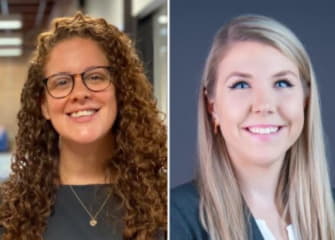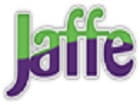
Spencer Mainka and Lauren Hadley
What happens when a federal court disagrees with the Department of Labor’s interpretation of the Families First Coronavirus Response Act (FFCRA) paid leave requirements? Well, it’s back to the drawing board for the DOL.
The DOL recently issued revisions to its FFCRA paid leave rules, in response to a New York federal district court that struck down major provisions of the original rules. Two of the revisions double down on the DOL’s original interpretation—a win for employers. Two others truly revise the rules regarding who may take FFCRA leave and how—a win for employees.
Reaffirmed Work-Availability Requirement
The FFCRA states that an employer must provide an employee with FFCRA leave to the extent that the employee is unable to work because of a need for leave “because of” or “due to” a qualifying reason. DOL’s original rule interpreted “because of” or “due to” a qualifying reason to mean that FFCRA leave is available only if an employee has work from which to take leave. Meaning, employees who have been laid off or furloughed remain ineligible for FFCRA benefits. The district court, however, criticized the DOL’s interpretation as a “bare bones explanation,” and required the DOL to provide a more detailed interpretation supported by legal authority.
In the revised rule, the DOL specifically relies on Family Medical Leave Act (FMLA) and Supreme Court precedent to reaffirm that an employee may take FFCRA leave only if the employer has work available. The new rule makes clear that “leave is most simply and clearly understood as an authorized absence from work; if an employee is not expected or required to work, he or she is not taking leave.” The DOL points out that the central purpose of the FFCRA was to discourage employees who might have COVID-19 from spreading the virus at work, and, therefore, work must be available for that purpose to be effectuated.
Reaffirmed Employer-Approval Requirement for Intermittent Leave
The DOL also addressed similar concerns from the district court that the original rule failed to explain why employer consent is required for intermittent leave. In the new rule, the DOL again relies on well-established FMLA law, which requires either a medical need to take intermittent leave or an agreement between the employer and the employee for intermittent FMLA leave to be granted.
The DOL reaffirms in the new rule that employer approval is needed to take FFCRA leave intermittently in all situations in which intermittent FFCRA leave is permitted. However, a loophole exists for employees who take FFCRA leave in full-day increments to care for children whose schools are operating on an alternate day (or other hybrid-attendance) basis. In these instances, FFCRA leave does not require employer consent because the leave is not technically intermittent. The school literally closes and opens repeatedly, and each day of closure is a separate reason for leave.
Revised Definition of “Health Care Provider”
In the original rule, the DOL interpreted the exclusion of “health care providers” from some or all forms of FFCRA leave very broadly. “Health care provider” included virtually any employee working at a health care facility, from food service workers to janitors, as potentially excluded from FFCRA benefits. The district court found this definition to be too broad and inappropriately employer-focused rather than employee-focused.
In the new rule, the DOL defines a “health care provider” to include employees who (1) are defined as a health care provider under the FMLA; or (2) are “employed to provide diagnostic services, preventative services, treatment services or other services that are integrated with and necessary to the provision of patient care and, if not provided, would adversely impact patient care.”
The new rule also specifically excludes “information technology (IT) professionals, building maintenance staff, human resources personnel, cooks, food service workers, records managers, consultants, and billers” to directly address the court’s concerns about the definition being too broad.
Revised Notice and Documentation Requirements
The district court also found the original rules’ requirement that an employee provide documentation prior to taking FFCRA leave inconsistent with the Act’s requirement that notice is only required if the need for FFCRA leave was foreseeable. In response, the DOL amended the rule to clarify that documentation need not be given prior to taking FFCRA leave, but rather, may be given as soon as practicable. However, if the need for leave is foreseeable, that generally means that the employee needs to provide notice before taking leave.
Moving Forward
Some have questioned whether a New York district court ruling was applicable outside the New York state. Besides being a federal court and deciding an issue of federal law, the DOL has since confirmed that the court’s order applied nationwide.
The DOL’s revised rules regarding FFCRA leave directly impact health care employers and employees and indirectly impact many more. Employers should proceed with caution when it comes to the FFCRA. The rules and regulations concerning FFCRA leave continue to change and it is a good idea to consult your labor and employment attorney to ensure your FFCRA leave policies and practices are up to date.
Spencer M. Mainka is an Associate Attorney at Pham Harrison, LLP. She is the Secretary of the Labor and Employment Section of the Tarrant County Bar Association. Her practice focuses on litigation and counseling employers through various issues that arise in the employment relationship. She can be reached at smainka@phamharrison.com.
Lauren Hadley is a law student at Texas A&M University School of Law in Fort Worth, Texas. She is in her final year of law school and working as a Legal Extern for Pham Harrison, LLP. She is interested in pursuing labor and employment law after graduation. She can be reached at lauren.hadley@tamu.edu.






